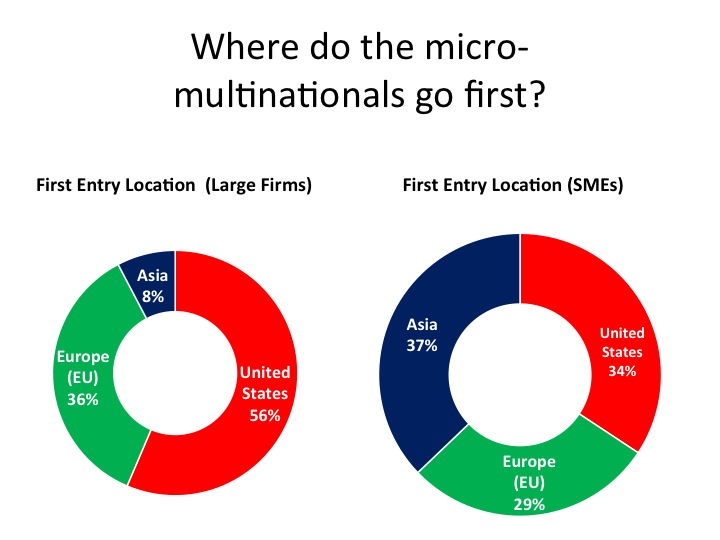In exploring opportunities for Canada in Asia, the recently published Conference Board of Canada report, Canada’s New Trade and Technology Paradigm: Finding the Right Policy Mix, coupled with the Asia Pacific Foundation of Canada’s Building Blocks for a Canada-Asia Strategy should be must-reads for policy-makers at all levels of government.
What is of particular interest, because it coincides with data from the Creating Digital Opportunity research partnership led by the Munk School of Global Affairs, is the focus on services, especially high-value business services from communications and finance to professional and technical. Looking at the digital map of Canadian business locations in Asia that can be found on the Munk and APF Canada websites, around two-thirds of all locations are services-related. China and Hong Kong, home to the majority of Canadian businesses in Asia, are attracting a wide range of Canadian services companies. In fact, services account for around 75 per cent of all locations in China and Hong Kong, with the largest numbers in information/communications; engineering/environment/geology; and, financial. The Conference Board report points to the considerable potential to sell services into the Chinese manufacturing and services sectors and in addition, there is room for Canada in the other emerging markets in Asia that complement Chinese value chains.
While there may be some companies simply selling data across borders and oceans, the fact is that services-related companies often depend on face-to-face relationships. It should also be remembered that the majority of the “value” in global value chains is derived from services, even when there is a manufactured product. So the promotion of Canadian high-value business services as a key element of any innovation, trade or investment policy makes sense.
The explosion in digital globalization presents numerous opportunities for Canadian companies in the digital economy sphere, particularly in services. As pointed out in the Conference Board report, these days it is easier for companies to be “born global” as digital globalization is precipitating a dramatic fall in the costs of entering international markets.
This is certainly true of the many digital economy locations of Canadian companies in Asia. Based on the location-based data for the digital map (now at over 2,000 locations across Asia), it is evident that even small- and medium-sized enterprises (SMEs) have been able to participate in global value chains and follow their clients to Asia. The “micro-multinationals” (those SMEs with operations in Asia plus the U.S. or EU, or both) are of particular interest: 37 per cent of software-related companies, for example, went to Asia before launching in the U.S. or EU markets.

As proposed in the APF Canada report, we should be promoting options to build the kind of cross-border partnerships in entrepreneurship and innovation that will benefit both sides of the ocean. The digital map and related research demonstrate that Asia high-growth markets are already a significant draw for Canadian companies, and governments should be actively furthering this activity.
Our trade policy should focus on trade and investment related to services, and work to mitigate any barriers to people, investments, data and ideas that fight against the kind of “digital protectionism” that impedes business expansion.




